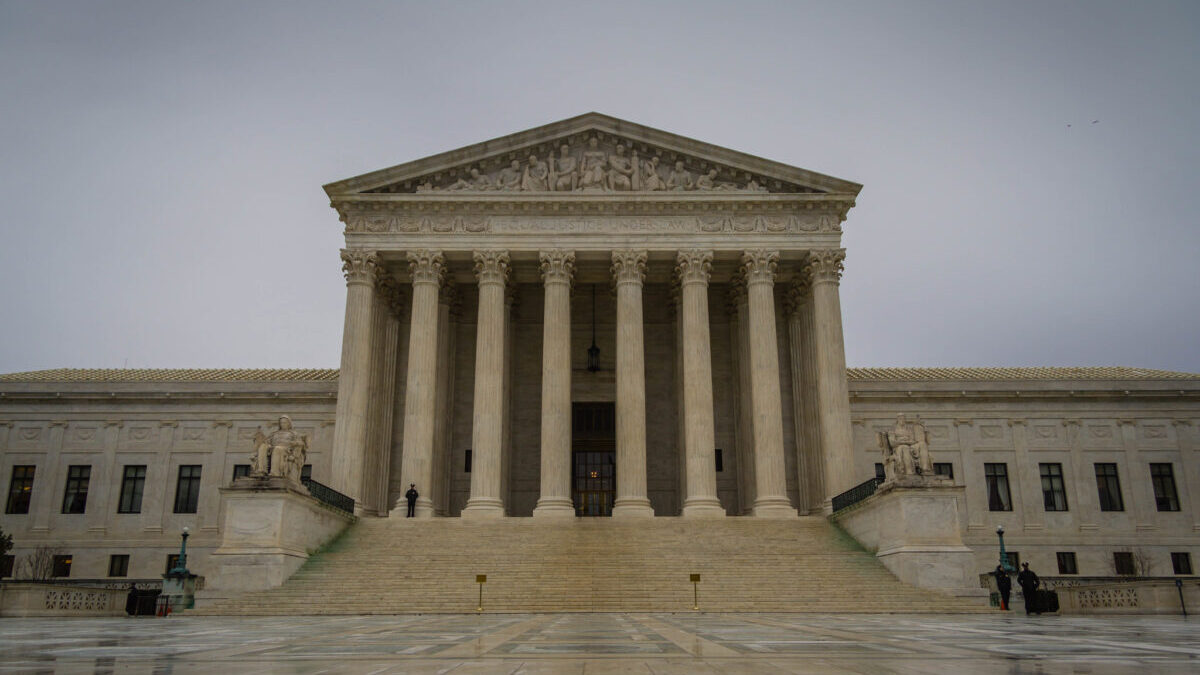The Supreme Court will be considering on Friday whether to take two cases that “could be the next Janus for labor unions.”
In 2018, the high court upheld the right of public employees to abandon mandatory unions that had been forcing them to fork over thousands of dollars in an arrangement that violated their right to free speech. In Janus v. American Federation of State, County and Municipal Employees, the justices overturned an Illinois law that compelled public employees to subsidize unions regardless of their personal objections to the unions’ activism.
Writing for the majority, Justice Samuel Alito explained the case’s significant First Amendment implications.
“Compelling individuals to mouth support for views they find objectionable violates that cardinal constitutional command, and in most contexts, any such effort would be universally condemned,” Alito wrote.
Suppose, for example, that the State of Illinois required all residents to sign a document expressing support for a particular set of positions on controversial public issues—say, the platform of one of the major political parties. No one, we trust, would seriously argue that the First Amendment permits this.
From the moment the decision was delivered, however, blue state legislatures have implemented laws to circumvent the high court’s ruling.
Bethany Marcum, the Alaska state director for Americans for Prosperity, and Steve Delie, the director of labor policy at the Mackinac Center for Public Policy, explained in an op-ed for Fox News that “in many states, government unions simply fail to tell workers that they have the right to opt out of membership, giving the impression that membership is mandatory.”
“Some states have passed laws that ban employers from telling workers about their rights. And in other states, unions make the opt-out process so burdensome, few if any employees can navigate it,” they wrote.
In Oregon, for example, “one government union requires members to opt out between 45 and 15 days prior to the anniversary of the day they signed their membership cards.” The union, however, “doesn’t provide a copy of the card, making the window difficult to determine.”
Further north in Alaska, state employees only have a 10-day period in June to leave the union. When Republican Gov. Mike Dunleavy tried to reform the state’s union regime by replacing the “opt-out” system with an “opt-in” one, the Alaska Supreme Court struck down the governor’s plan. Now, in Alaska v. Alaska State Employees Association, the U.S. Supreme Court is being asked to consider a case that could see the high court overturn the state court’s ruling and allow Alaskan public employees the right not to be charged for union dues without their permission.
In another case, Jarrett v. Service Employees International Union Local 503, the Freedom Foundation is leading five appeals from Washington, Oregon, and California alleging that employees’ signatures were forged on paperwork to authorize union dues. The Freedom Foundation is a free market think tank in Washington state that describes itself as a “battle tank that’s battering the entrenched power of left-wing government union bosses who represent a permanent lobby for bigger government, higher taxes, and radical social agendas.”
The Freedom Foundation is asking the Supreme Court to reconsider the 9th Circuit Court’s attempts to dismiss forgery claims and its “holding that a union is not a so-called ‘state actor’ to whom the Constitution applies when it instructs government employers to forward money from non-consenting employees’ wages to union political coffers.”
James Abernathy, counsel of record for the Freedom Foundation, cited “two fundamental problems” with the 9th Circuit Court’s ruling.
“First, there’s abundant case law showing that, in cases like this, the union is treated as a state actor and can be held accountable for its actions,” Abernathy said. “And secondly, the Supreme Court had already ruled that dues can’t be deducted by either the state or the union without the employee’s consent. It doesn’t matter what state laws say. The U.S. Constitution takes precedence.”
The Supreme Court is expected to consider whether to hear the cases on Friday.









